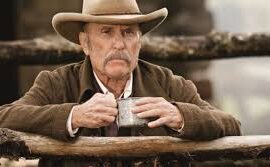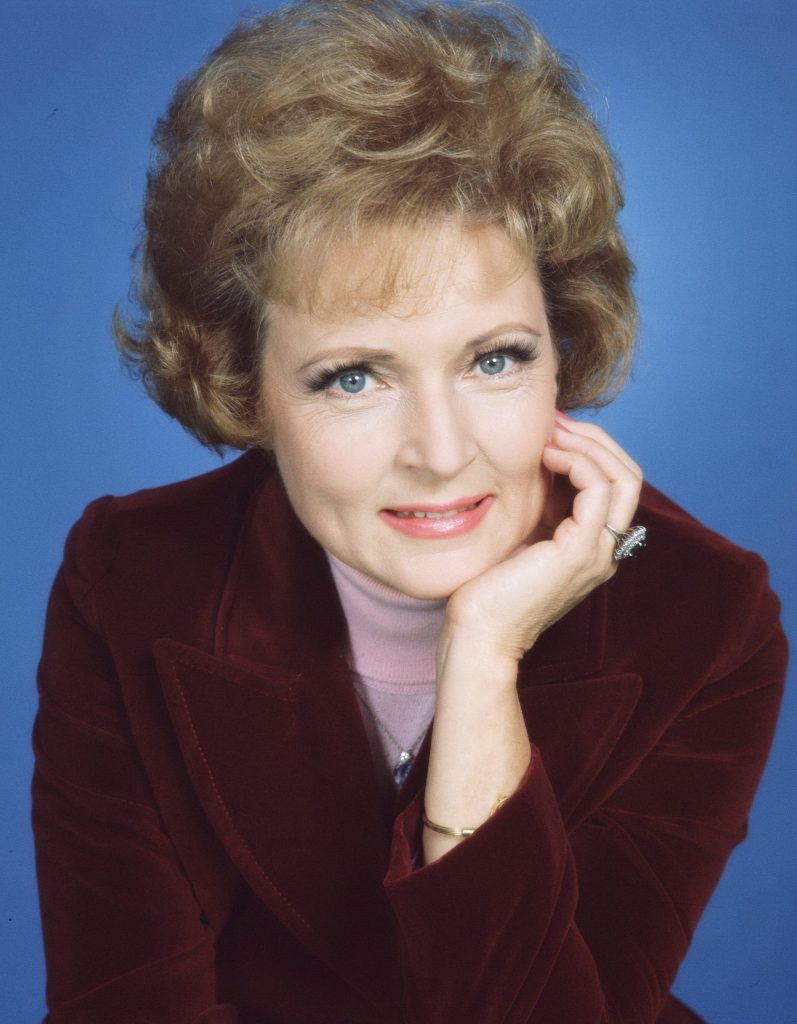
UPDATED: NBC will re-broadcast White’s Mother’s Day episode of Saturday Night Live from 2010 this Saturday, Jan. 1 at 11:30 p.m. ET.
Twenty twenty-one — don’t let the door hit you on on your way out.
Just 18 days before her 100th birthday, beloved TV icon Betty White has passed away at 99.
One of television’s true pioneers, White, who died New Year’s Eve, was best known for long runs on two of TV’s greatest sitcoms: The Mary Tyler Moore Show (1973-’77) and The Golden Girls (1985-’92).
Her passing makes it five key people associated with Mary Tyler Moore’s show to pass away in 2021; the others being Cloris Leachman (January 27), co-creator Allan Burns (January 30), Gavin MacLeod (May 29) and Ed Asner (August 29).

On the classic Mary Tyler Moore Show episode, “Chuckles Bites the Dust,” the WJM news crew return to Mary Richards’ apartment after the funeral of the station’s kiddie show host. As fans will recall, “Chuckles” was squashed in a parade by a rogue elephant. As Murray so eloquently put it, “Born in a trunk, died in a trunk.”
“You know, it’s the sort of funeral I would want,” said Georgette (Georgia Engel), who saw the brighter side of everything.
advertisement
“Not me,” said White’s man-hungry character Sue Ann Nivens. “I want to be cremated and my ashes thrown on Robert Redford.”
White, who went on to star on Hot in Cleveland (2010-15) had a longer career in television than anyone, ever. Her first starring series, which she also produced, was Life with Elizabeth (1953-55).
PBS saluted her as one of their “Pioneers of Television” in 2007. She was joined at the Los Angeles press tour session by talk show host Dick Cavett, Johnny Carson’s Tonight Show announcer Ed McMahon, Carol Burnett Show funnyman Tim Conway and singer Tony Orlando.
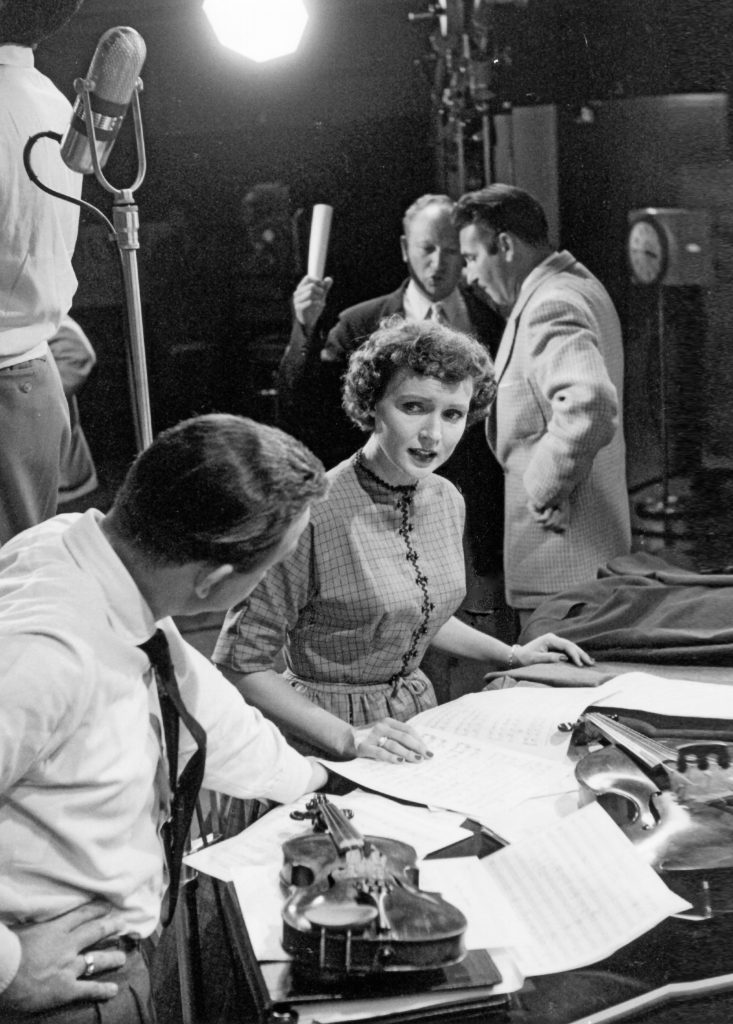
White awed all of us at that gathering with tales of TV’s earliest age. Raised in Los Angeles in the Great Depression, White made a guest call at the age of eight on a radio show in 1930. By the end of the ’30s, she and some classmates appeared on an experimental TV show. By 1949, she co-hosted a live, daily TV variety show called Hollywood on Television.
Yes, she started early White acknowledged. Husband Allen Ludden used to joke that she was “a pioneer in silent television.”
White sang, ad-libbed, performed impromptu skits and probably also made the craft services sandwiches on Hollywood on Television. She was on air five-and-a-half hours a day, six days a week for which she earned fifty dollars.
Said White, “I thought I had died and gone to heaven.”
By 1952, she was starring in and producing her own sitcom, Time for Elizabeth, a two-season venture which sprung forth from some of those daytime TV sketches.
“We also had a woman director,” recalled White, “but at that point you didn’t think it was unusual because we didn’t think in gender terms. We were just busy doing what we were doing.”
When she turned 90 in 2012, NBC hosted another TCA press session, this one held first thing in the morning. “Who doesn’t want to have breakfast with Betty White?” said then NBC Chairman Robert Greenblatt.
Many of White’s golden years were spent at NBC, with The Golden Girls airing there from 1985 to ’92. White hosted a daily talk show for NBC way back in 1954 and also used to host the Peacock network’s coverage of the annual Macy’s Thanksgiving Day parade.
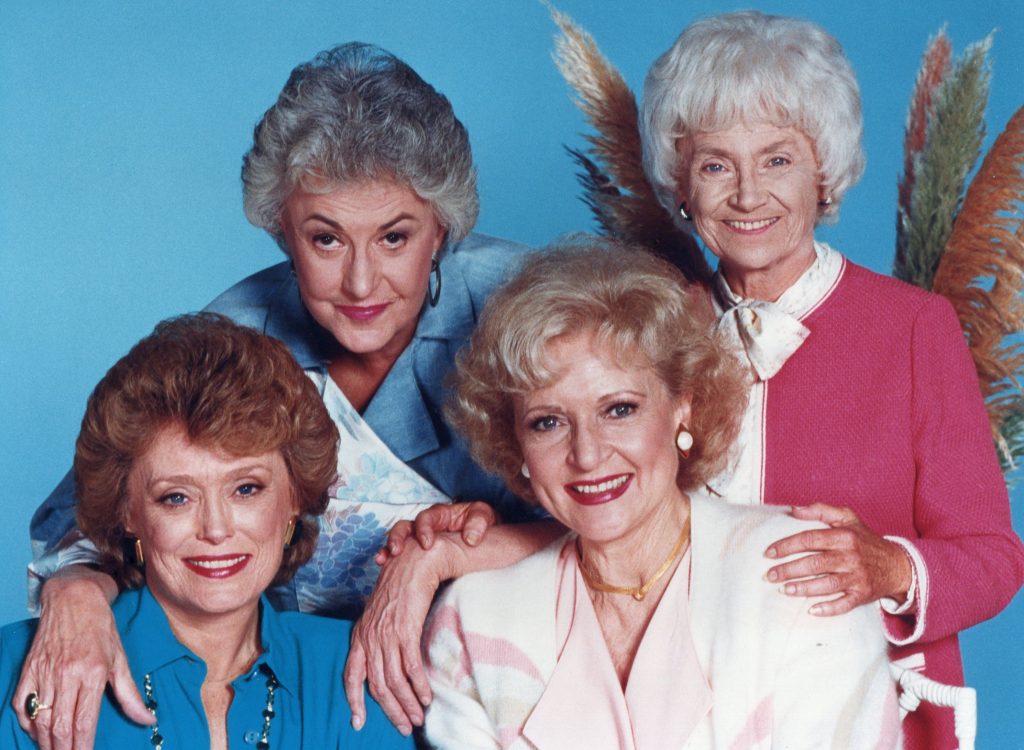
Decades later, NBC showcased her in 2012 for something called Betty White’s Off Their Rockers, a reality gag show much like Just For Laughs Gags. The show features senior citizens pulling pranks on the younger generation.
“Hey–we’ve got a sense of humour too, warped as it may be,” White told critics.
White felt she deserved no credit for turning 90. “It just happened. I didn’t accomplish anything. It just came up on me. But I’m blessed with good health for which I’m deeply grateful.”
“I’m the luckiest old broad on two feet,” she continued, “and I don’t take it for granted for one single minute.” Critics marveled at her energy, to which she credited good genes. “I’m not lying about my age,” she insists. “If I were lying about my age, I would say I was 89.”
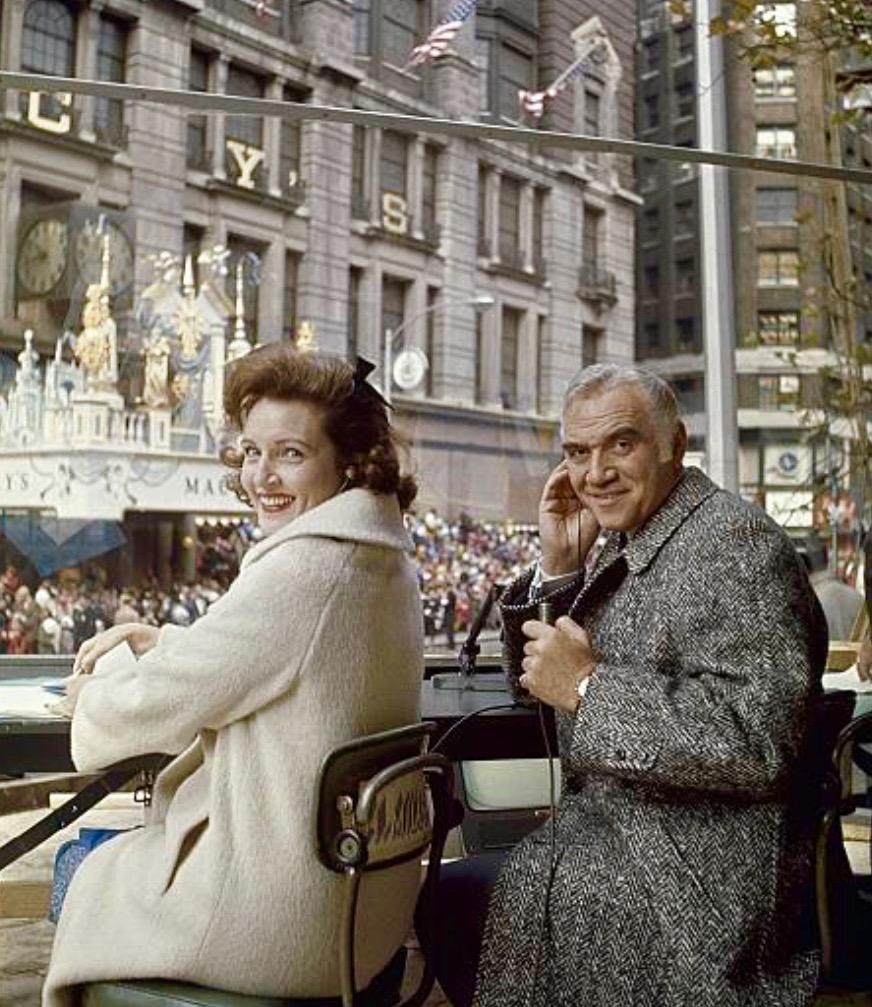
Her only regret was that former husband Allen Ludden wasn’t around to share all her late life success. The former Password host passed away in 1981.
White even shot Hallmark movies as she approached her nineties, including 2011’s The Lost Valentine. She was asked how she sorted through all these offers. “I have a wonderful agent,” she says. “When he brings me stuff, I say yes. If I don’t, he beats me.”
On a serious note, White told reporters that the biggest change in television over the years was the audience.
“They’ve heard every joke. They know every plot. They know where you’re going before you even start. That’s a tough audience to surprise and a tough audience to write for.”
It wasn’t that way in 1949 or 1950. “In those days,” said White, “the audience hadn’t heard every joke or seen every plot. It was just this magic box in the corner of the room, and the audience was so willing to be amused. It’s not that easy now.”
White never stopped working. She was hilarious in a 2009 Snickers commercial, taking a hit on a football field. In 2010 when she was a spry 88, White hosted NBC’s Saturday Night Live.
It was a Mother’s Day edition, with a mostly female cast. When that appearance was being promoted to critics, a familiar voice on the conference call was Rob Salem from The Toronto Star. Salem roared with laughter as White joked she’d have to hit on the male crew members if there were no men in the cast.
The last TCA press tour session devoted to White was one she did not attend. In 2018, PBS saluted her with a documentary sure to be repeated soon titled, “Betty White: First Lady of Television.” The public broadcaster had planned to feature her on a panel with Engel and MacLeod to promote the doc but she was not well enough to attend. Instead, reporters met for the last time with the two other Mary Tyler Moore veterans.
“What people don’t know is I was coming closer to Betty when not much was happening in my career,” said Engel, who died at 70 in 2019. “Betty is one of my dearest friends, and so it was a special joy when I got to be on Hot in Cleveland with her. But my favorite times with Betty don’t have to do with show business. She opened adventures with animals to me, and I’ve had the most wonderful time getting to know animals through Betty’s love of them.”
White evidently has a special pass into the Los Angeles zoo and on a couple of occasions invited Engel along to visit “Bam Bam,” an eight-hundred pound grizzly bear. “She told me how to give Bam Bam a marshmallow with my teeth and the bear takes it,” Engel told reporters. “And Betty was so happy because she didn’t know anybody else that would want to learn that.”
After The Mary Tyler Moore Show ended in 1977, White hand-picked Engel to be part of the spin-off, The Betty White Show.
“It was a short-lived series, but it just speaks to Betty’s self forgetfulness,” said Engel. “Whenever she is with friends, she isn’t thinking about herself. She’s thinking about the other people.”
MacLeod recalled that White was a very fast study when it came to lines. On live audience productions such as The Mary Tyler Moore Show, actors would be given a script on Monday that would often be completely revised by Thursday. Then they’d have to shoot it Friday night.
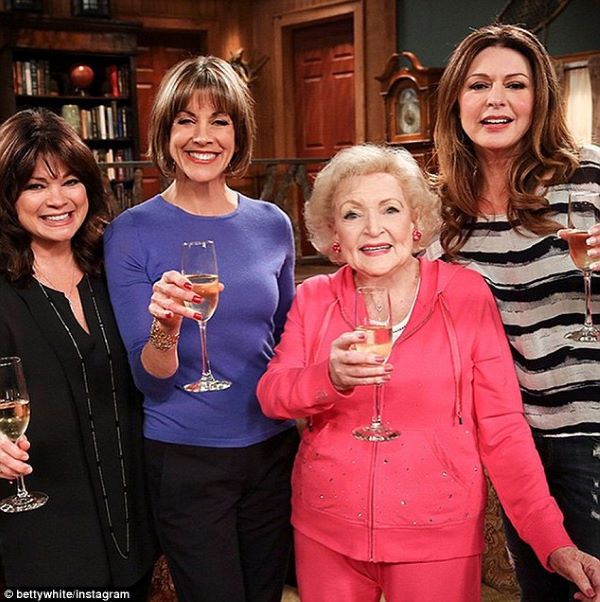
The other actors, said MacLeod, would all be around a table, “working, trying to get it into our skulls, and she could just put that thing down, go up, and do it…She was the quickest study I had ever worked with in my whole career. And then, of course, she was right on the money. She added her own kinds of takes and things.”
There was one other performer on that 2018 panel: Arthur Duncan. He was a dancer on White’s variety show in the mid-’50s.
“I think that she was probably one of the nicest, the grandest, the greatest of all people that I’ve had the chance to meet throughout my life,” said Duncan, still dancing at 88. “Whenever she walked into a room, it lit up.”
After working with White, Duncan enjoyed a long career as a performer on The Lawrence Welk Show. White taught him the benefit of hard work and of giving his best every time, he told critics.
She also stood up to pressure from sponsors who wanted the young African American entertainer off her show.
Duncan never knew it at the time, he only read about it later in a book White wrote. Some southern affiliates apparently threatened to drop the series if Duncan remained. White’s response was to feature him even more.
“This was back in 1954, ’55,” he recalled. “I think that she just stood up for her beliefs, and that ended that. That solved everything at that time.”
I do recall one phone interview I did with White. It was back when I was working at TV Guide Canada and she was on The Golden Girls. She had probably just been singled out in the magazine’s annual Reader’s Choice awards. I reached her at her home in LA, which was being renovated. Workers were buzzing around as were various cats in the background. White remained a pro, made mine seem like a call that mattered and worked in a few jokes for her fans up in Canada.
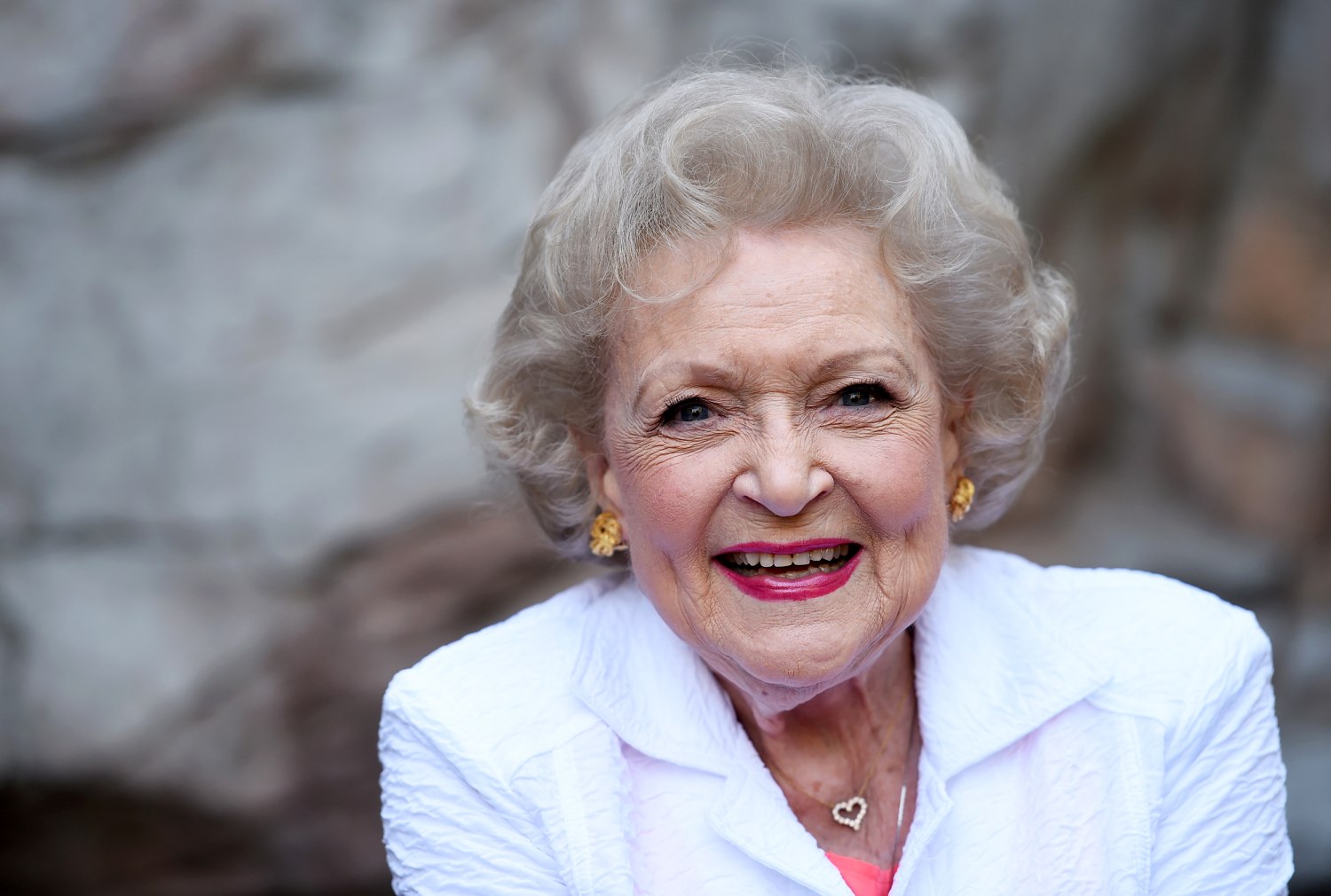
People magazine plans on going forward with their “Betty White: 100 Years Young” special set for selected cinemas on Jan. 17, 2022. It seems fitting as White never planned on retiring. She suggested in 2007 that Carol Burnett had the best answer to that question.
“She said, ‘you know how in a mystery play, there’s a skeleton — when they open the door, the skeleton rattles? I’m going to wind up being that skeleton.”






